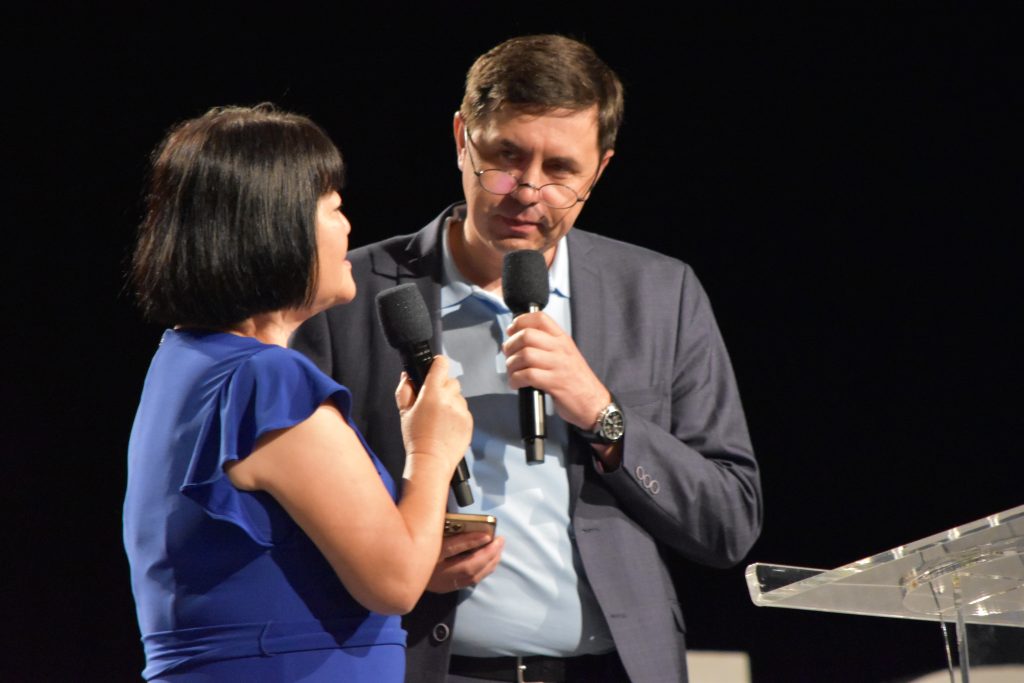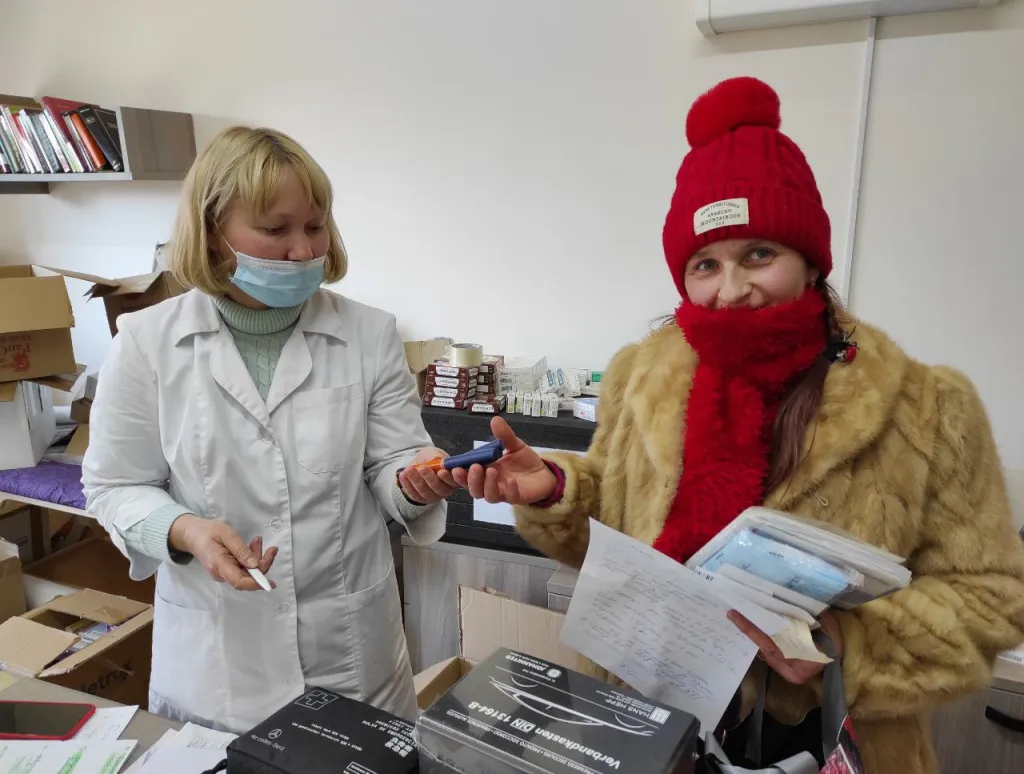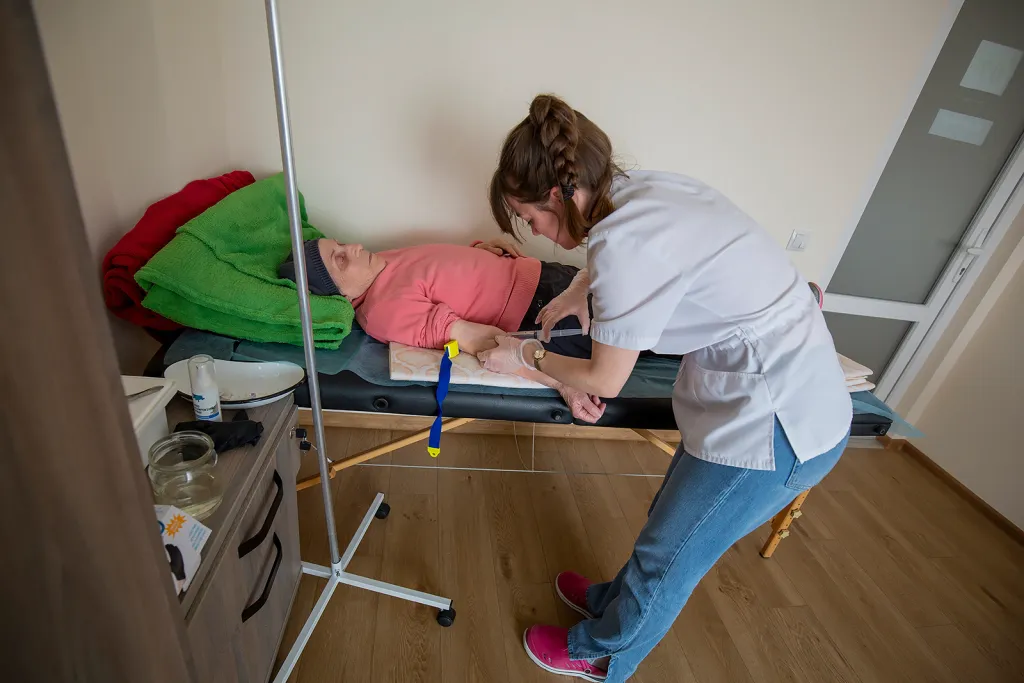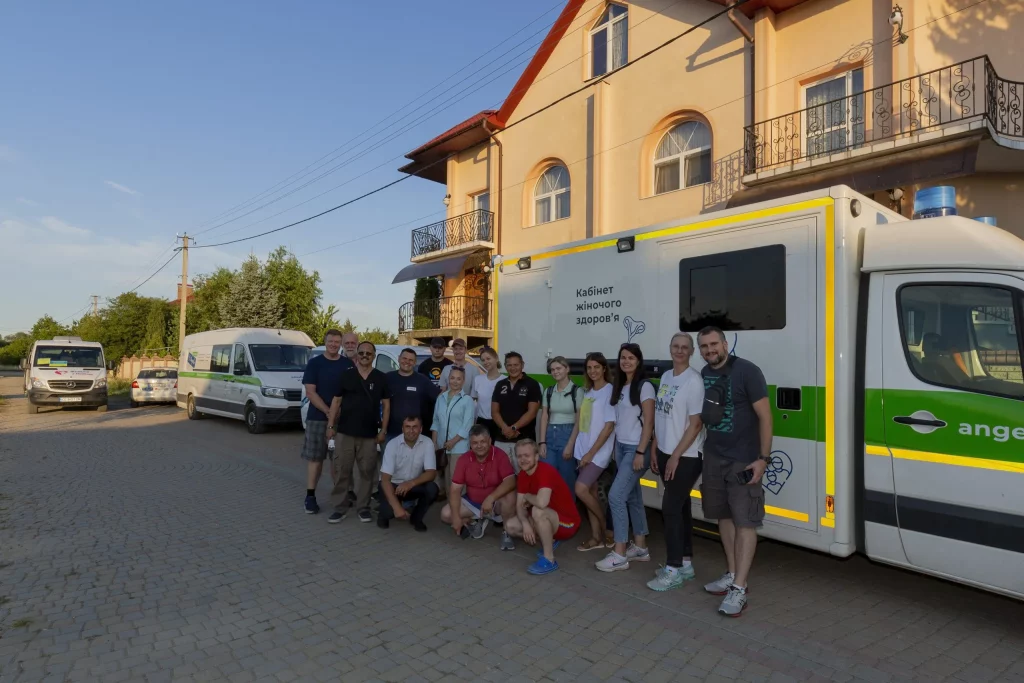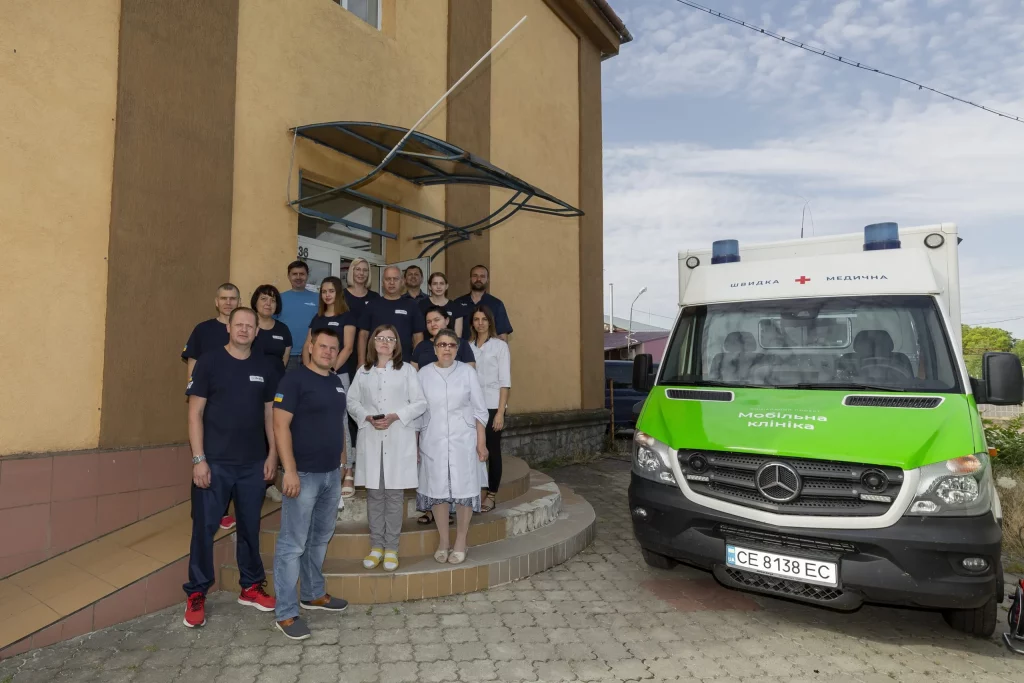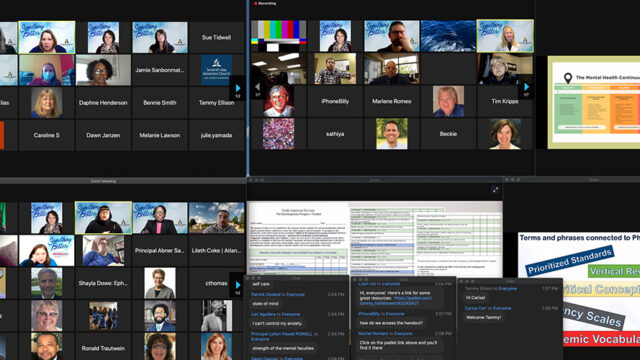Angelia Clinic is providing life-saving services to residents in war zones.
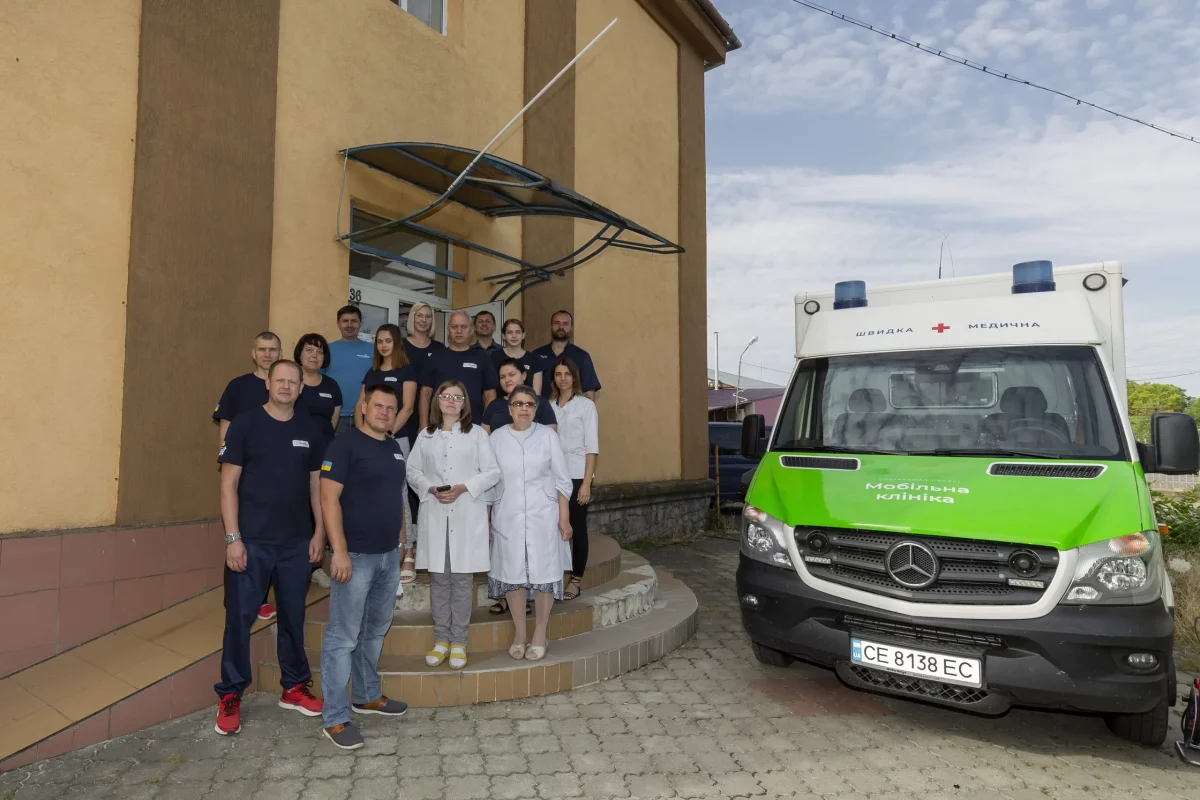
Imagine you live in a city, and every day you hear shootings in your city, and you are one of the teachers at a local school. Imagine you don’t have the possibility of not going to school, so every day could be your last day. Now imagine this school has a dormitory, and there is a night shooting in this dormitory.
How can you assist those living with such high levels of stress and trauma? By being there to listen, pray, and give a hug, Angelia Clinic CEO and psychiatrist Yuri Bondarenko says. On August 3, at the Adventist Laymen’s Services and Industries (ASi) annual convention in Kansas City, Missouri, United States, Bondarenko shared what he and his team are doing to support and encourage people living through this ordeal.
Angelia Clinic
The clinic, located in Kyiv, opened its doors in 2014 as a social center, helping migrants from Eastern Ukraine, disabled people, and the elderly, women, and children. Angelia Clinic was born to cooperate with public and charity organizations initiatives such as the ones implemented by the Adventist Development and Relief Agency (ADRA) Ukraine, ADRA Canada, and ADRA Germany, its leaders shared.
In 2016, the center received a medical license. “The creation of this clinic is based on the idea of applying a wholistic approach to treatment and disease prevention, combining physical, emotional, and spiritual health,” the clinic’s website says.
Counting His Blessings
“I am experiencing blessings, many blessings” despite the reality of the war in Ukraine, Bondarenko says. “Being the leader of a team of people sacrificing themselves every day, at the clinic in Kyiv and in mobile trips … is a huge responsibility and an amazing opportunity to serve.”
When the war started in February 2022, the Angelia team decided right away to increase their mobile clinic activities. Angelia leaders got some vans and turned them into mobile clinics. Now they are the largest mobile clinic group in Ukraine, serving internally displaced people (IDPs) in the former occupied territories, in liberated territories where there is no medical infrastructure.
“We also delivered humanitarian aid with a team of more than twenty doctors and nurses,” Bondarenko says, “going there and helping them, praying with them, hugging them, providing professional care.”
Horrific Testimonies
Angelia practitioners also provided much needed psychological and psychiatric care, as some of the ordeals people went through are horrific.
Bondarenko shared the recent story of a patient, who came to talk to an Angelia gynecologist because of her lack of a menstrual cycle. The patient was highly traumatized after witnessing her husband and mother murdered. When the doctor examined her, she discovered that the woman was pregnant. “It was the most difficult patient I have had in my professional life,” the gynecologist told Bondarenko. “I had to tell her that she was pregnant from her recently deceased husband, and I didn’t know what to say.”
He also shared about a recent visit to a village where 180 out of the 200 houses in town are in ruins. Most homeowners are farmers with a few acres of land. In two days, Bondarenko took care of 17 patients who needed psychiatric care.
“The 17 that I tried to help had lost their homes,” he says. “In fact, my makeshift medical office had only two walls and two massive holes. I asked my first patient, ‘Where do you live?’ and she pointed out to the ruins around her and said, ‘This is my home.’ ”
Prayers and Hugs
Bondarenko also shared the story of a woman whom he talked out of committing suicide. The woman had two acres of land, and in that relatively small plot, 30 rockets had fallen, five of them without exploding. The territory around her is all mined. In fact, the road to the village is the only safe place right now, Bondarenko says. “I also prayed with the woman, as I often do with many of my patients, even though as a psychiatrist I am not supposed to,” he adds. “And she thanked me for listening and even smiled.”
He also described a recent visit to a city with three local Adventist churches. “Those churches are filled with 300 visitors every week, and only 20 percent of the visitors are Adventists,” Bondarenko says. “Church members feel it is a blessing, because God can always transform evil into good, and He is always faithful.”
Story of a Miracle
In one of those churches, members experienced what they consider a miracle. One day the local church pastor was in the building, even though his family was already in an underground shelter. Suddenly, the pastor felt an urgent need to drink water. As he went to grab a glass of water, a rocket fell through the roof, crossed the corridor where he had had been a few seconds before, made a hole in the wall, and blew up outside the building.
“I visited that church, and now you can see the whole neighborhood is attending every Sabbath [Saturday],” Bondarenko says. “There are only sixty chairs in the sanctuary, so, every Sabbath, sixty people fill the building even though only five of them are church members.”
It is what gives the team strength to keep going. “God is powerful, more powerful than any war,” he says.


